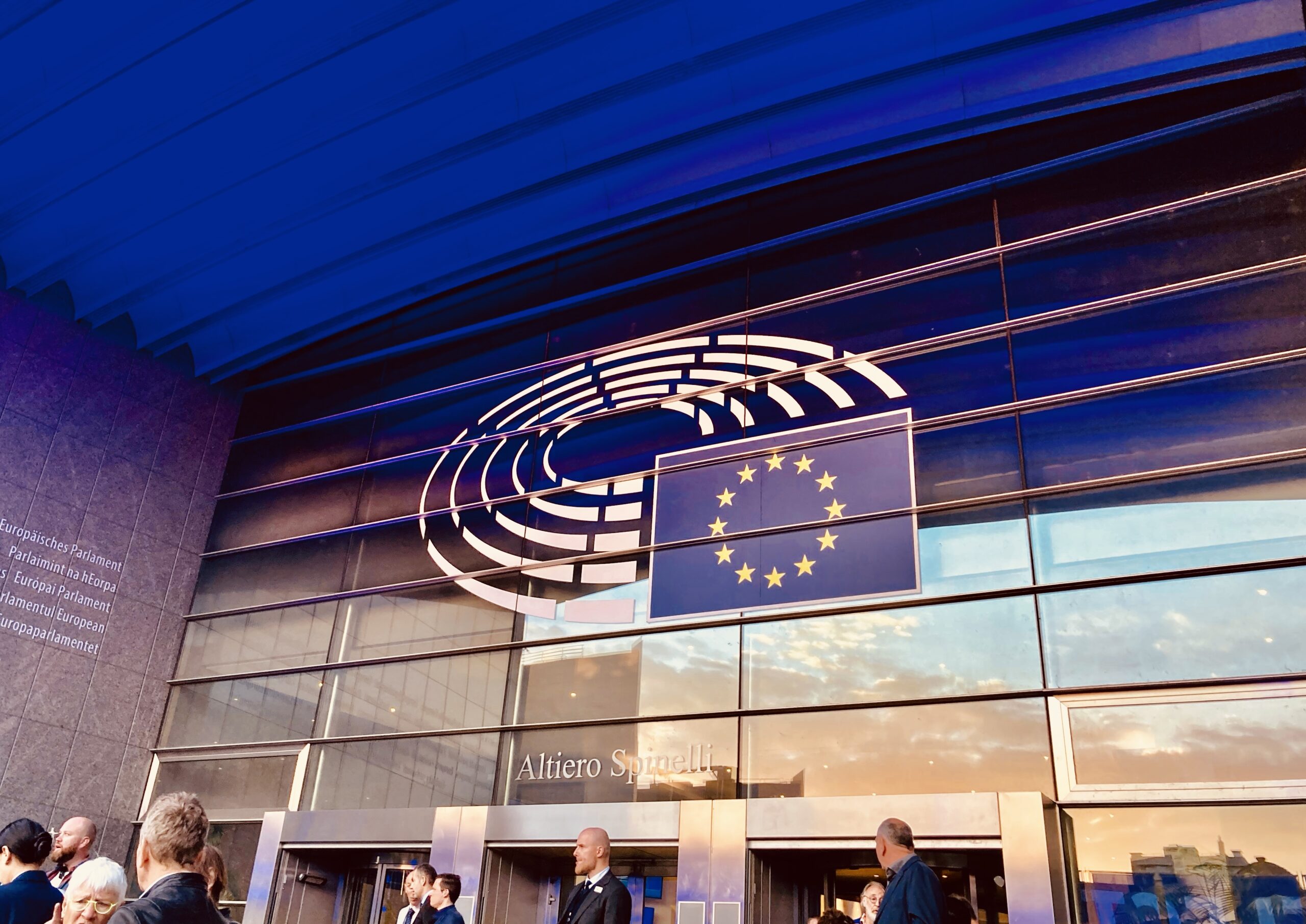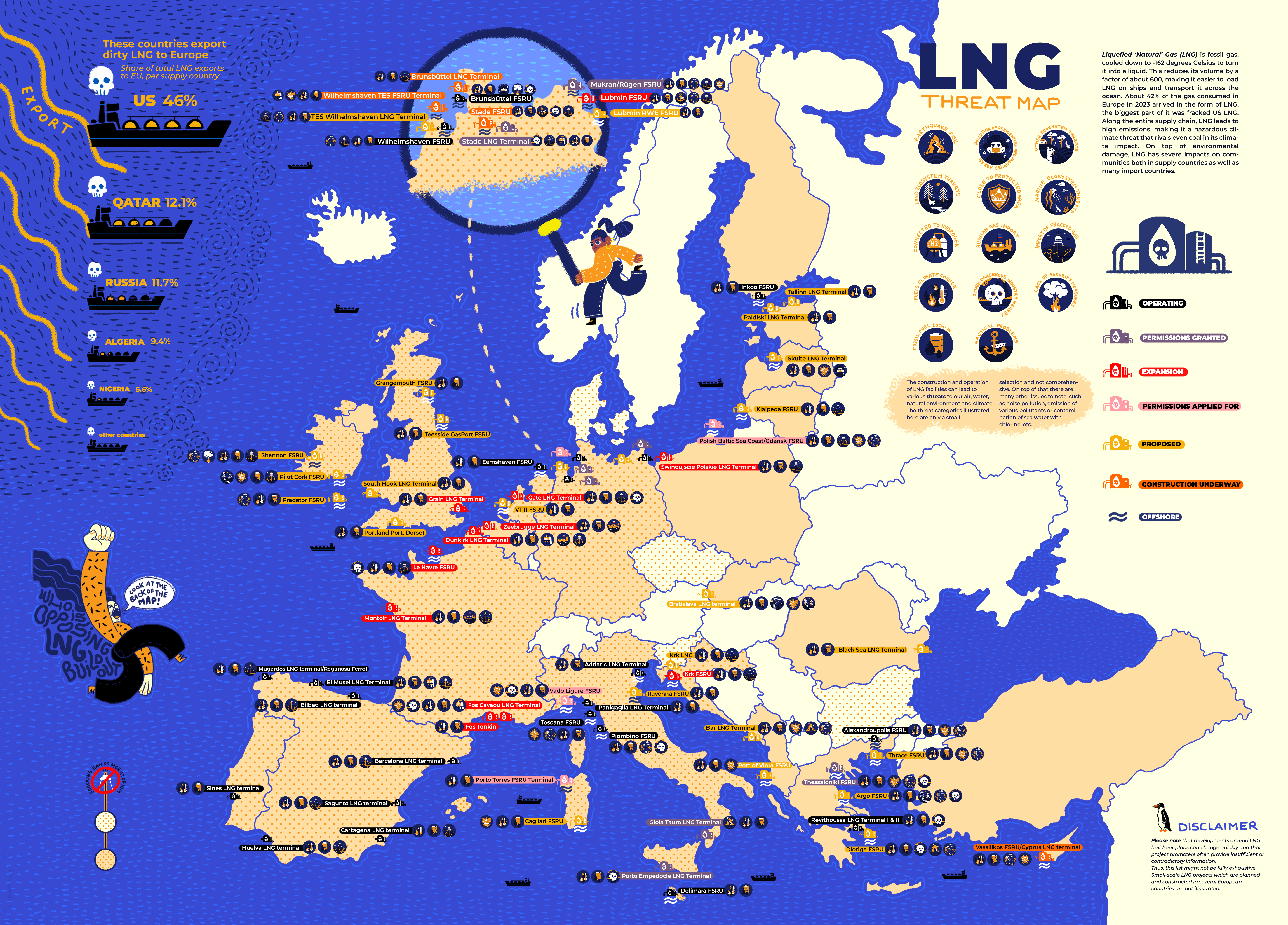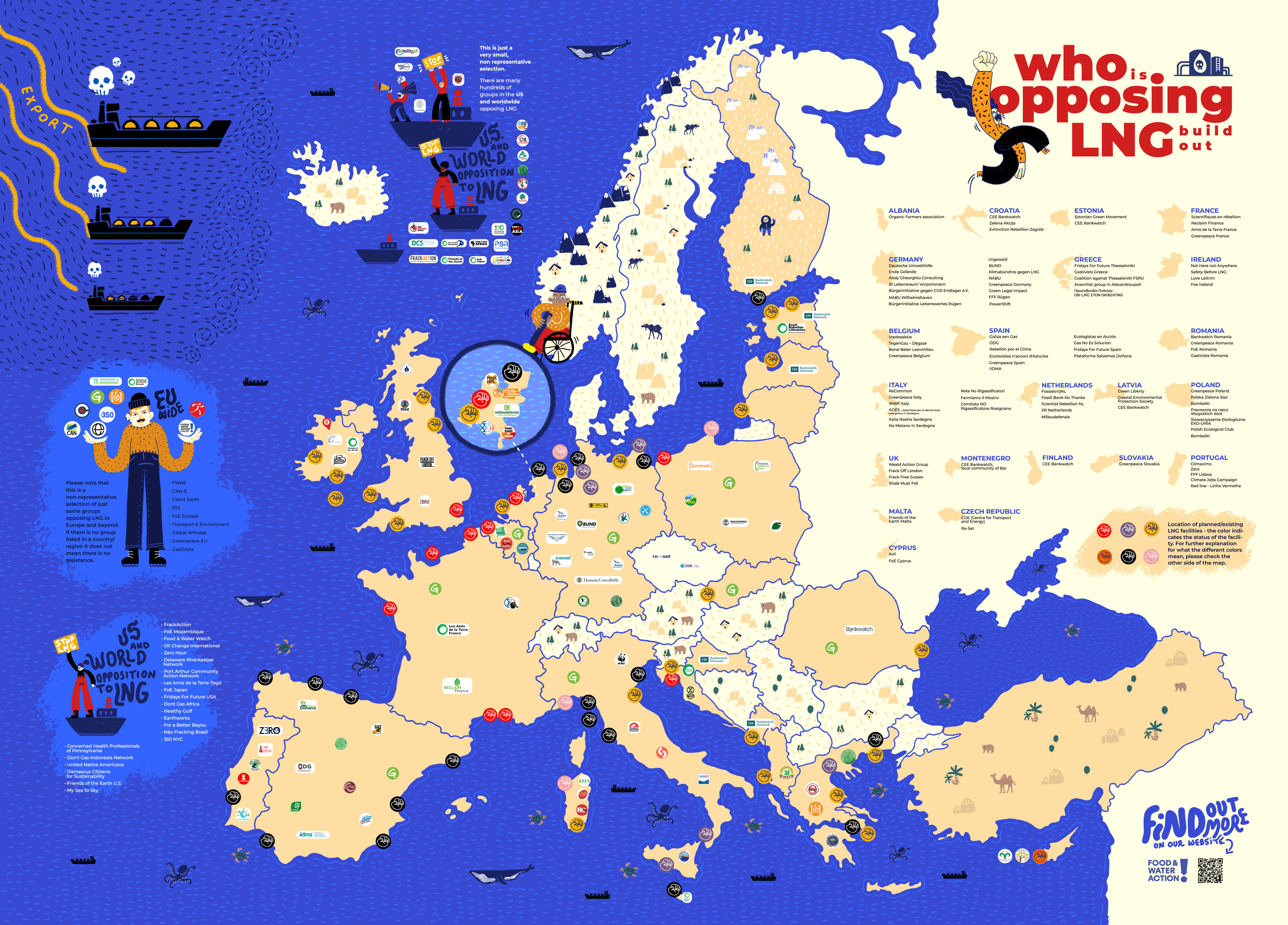Fossil gas and the new EU Commission
With the confirmation hearings for the new commissioners-designate beginning this week, we are taking a closer look at the key candidates who could shape the EU’s climate and energy policies in the coming years if they are confirmed.
Starting today, commissioners-designate will face a grilling at the European Parliament, where they’ll have to tackle a series of questions about their backgrounds and outline their priorities for the roles they seek to assume. If the College of Commissioners receives a positive vote from the European Parliament following the hearings, a new European Commission would begin on December 1.
We’re particularly keen to investigate three candidates: Dan Jørgensen (Energy and Housing), Wopke Hoekstra (Climate Action) and Teresa Ribera (Executive Vice-President for Clean, Just and Competitive Transition).
The pressing questions we’re asking are:
- If these three are confirmed, what stance will they take on fossil gas, given their backgrounds?
- Will they be more prone to listen to the fossil fuel industry, or will they genuinely strive to steer the EU towards a 100% clean energy transition?
Dan Jørgensen: Clean Energy Champion or Fossil Fuel Compromiser?
Dan Jørgensen, Denmark’s appointed EU Commissioner for Energy and Housing, is a seasoned politician from the Social Democrats. Jørgensen has previously held significant roles, including Minister for Climate, Energy and Public Utilities from 2019 to 2022, where he was instrumental in Denmark’s pledge to cut emissions by 70% by 2030. However, his approach to fossil gas has raised eyebrows and sparked debate.
While Jørgensen talks a good game about green transitions and reducing reliance on fossil fuels, his backing of the 115-km ‘Baltic Pipe’ gas pipeline, with a price tag of about $113 million, has left many scratching their heads. It’s hard not to see the irony: advocating for a cleaner future while simultaneously laying down infrastructure that extends fossil fuel use. As he prepares for confirmation, Jørgensen will need to demonstrate that he can prioritize a genuine transition to clean energy over short-term gains for the fossil fuel sector.
Skeletons in the Closet: Do Conflicts of Interest Shape Hoekstra’s Climate Decisions?
As Wopke Hoekstra awaits confirmation as the EU Climate Commissioner, his position on fossil gas is under intense scrutiny. His past positions with Shell and McKinsey — a management consultancy that counts major players in the fossil fuel sector among its clients, including some of the world’s largest oil and gas companies — have raised concerns about potential conflicts of interest.
In his hearing before the European Parliament’s environment committee following his nomination to succeed Commissioner Frans Timmermans, Hoekstra stressed the urgency of phasing out fossil fuels, calling them “counterproductive for the EU’s energy transition” and declaring, “the sooner fossil fuels become history, the better.” Yet despite these statements, questions linger about his genuine commitment to moving the EU decisively away from fossil gas.
In particular, some of Hoekstra’s positions have raised alarms – particularly his support for costly, unproven technologies that risk extending the lifespan of fossil fuels, such as carbon capture and storage (CCS). Although he has affirmed that CCS is not a panacea for all our decarbonization problems, he has emphasized that “we cannot afford to leave CCS out of the equation, particularly for the hardest-to-abate sectors.” Hoekstra is also directly involved in the EU’s plans for a major expansion of CCS technology. The European Commission’s strategy envisions CO2 storage growing from nearly zero today to 280 million tonnes annually by 2040, and reaching 450 million tonnes by 2050.
Relying on ‘false solutions’ rather than committing to an accelerated fossil fuel phase-out risks becoming a dangerous distraction. If re-confirmed as the EU’s climate chief, Hoekstra’s appointment would serve as a stark reminder of the fossil fuel industry’s persistent influence within EU decision-making and the critical need for stronger safeguards against conflicts of interest.
Teresa Ribera: Hope for a Green Champion At EU level
Known for her expertise in environmental policy and commitment to renewable energy, Teresa Ribera’s appointment could signal a positive shift in the EU’s approach to fossil fuels and the clean energy transition. As Spain’s Minister for Ecological Transition, Ribera has been a vocal proponent of renewable energy sources and has criticized the fossil fuel industry’s lack of transparency on climate issues. Therefore, if confirmed as EU commissioner, Ribera is expected to prioritize the expansion of Europe’s electricity grid and the acceleration of renewable energy initiatives – although it will be crucial to ensure that this does not translate into support for fossil-based hydrogen and other false solutions.
In her role as Vice President for a Clean, Just, and Competitive Transition, it will be vital for Ribera to uphold her commitment to redirecting subsidies from fossil fuels to clean energy. This approach not only seeks to alleviate the cost-of-living crisis but also confronts urgent climate and environmental challenges, ensuring that the ‘just’ in her title reflects a genuine commitment to equity and sustainability for all communities.
A growing concern is that less progressive forces within the Commission, along with resistance from certain EU member states and a more conservative European Parliament, could exert undue influence. This could mean that real opportunities for transitioning away from fossil fuels –particularly fossil gas – may be sacrificed on the altar of political expediency.



 As the sun sets on the European Parliament in Brussels on 9 June, it is the same old stone and glass building as before, but the composition of its parliamentarians has changed. While the worst results could be avoided, there is not much to celebrate.
As the sun sets on the European Parliament in Brussels on 9 June, it is the same old stone and glass building as before, but the composition of its parliamentarians has changed. While the worst results could be avoided, there is not much to celebrate.


